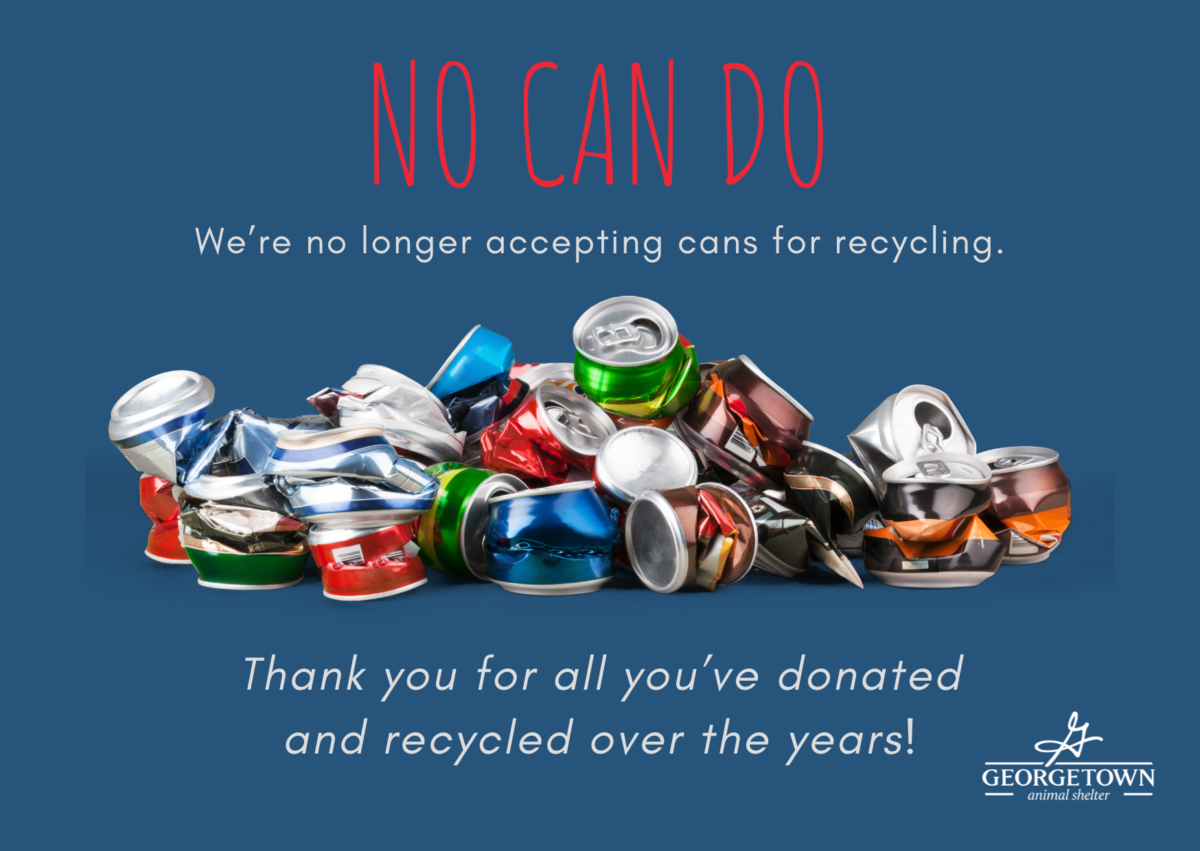Kittens in the Library July 30
Are you kitten me?! Adopt a kitten at the Library for only $35!
Join us at the Library on July 30 from 11 a.m. to 1 p.m. for a heartwarming kitten adoption event! You can give a precious kitten a forever home. These adorable furballs will be ready to go home with you the same day. Can’t adopt right now? Come cuddle a kitten instead.
This special event is proudly brought to you by the City of Georgetown Animal Shelter and the Library. Don’t miss out on the purrfect opportunity to find your new best friend!
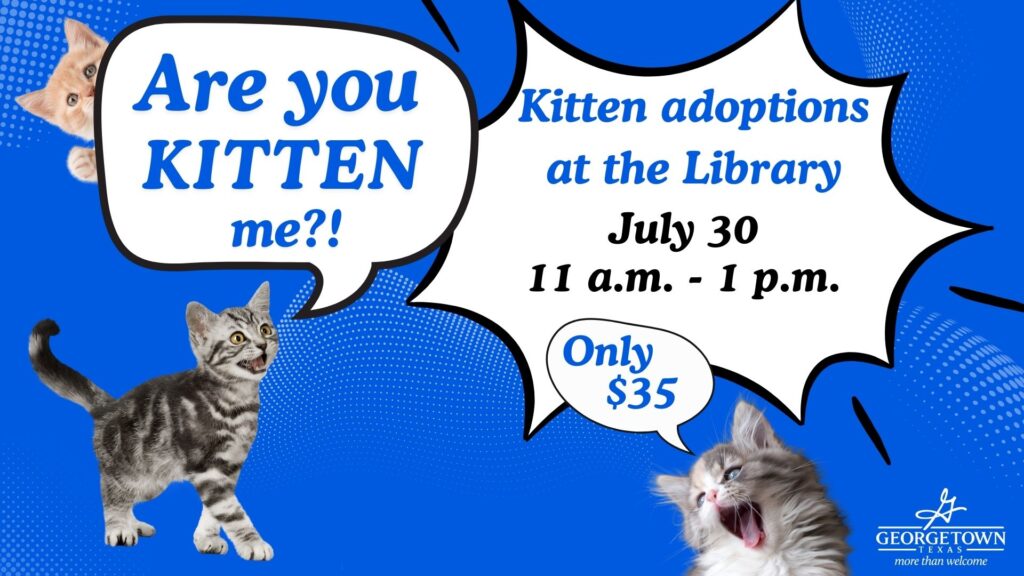
Shelter No Longer Accepting Aluminum Cans
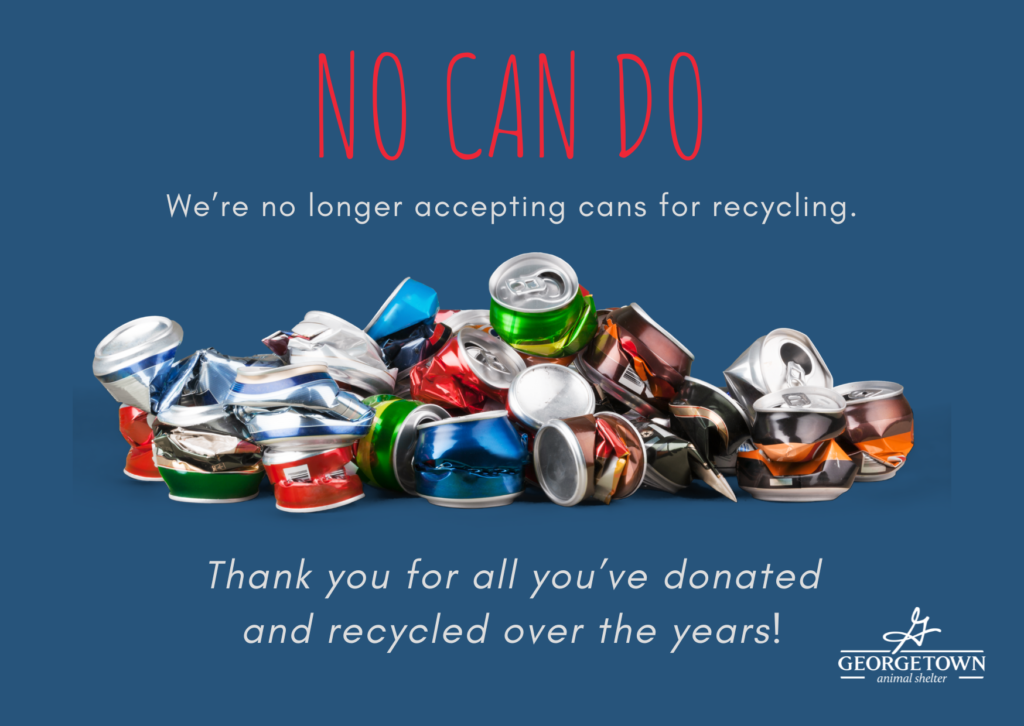 The animal shelter is no longer accepting aluminum cans for recycling. Over the years, volunteers have exchanged many thousands of donated cans for thousands of dollars to benefit the shelter’s dogs and cats. In anticipation of the shelter’s dissolution, staff and volunteers are paring down some activities and focusing on their primary roles as caregivers and pet advocates.
The animal shelter is no longer accepting aluminum cans for recycling. Over the years, volunteers have exchanged many thousands of donated cans for thousands of dollars to benefit the shelter’s dogs and cats. In anticipation of the shelter’s dissolution, staff and volunteers are paring down some activities and focusing on their primary roles as caregivers and pet advocates.
GTX Residents: 2024 Free Spay/Neuter Clinics for Cats
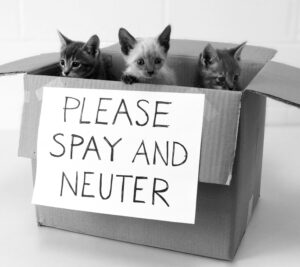 The Georgetown Animal Shelter has announced dates for its 2024 spay/neuter clinics for cats – January 20, February 24, and March 23. The goal of the clinics is to reduce the cat population in Georgetown.
The Georgetown Animal Shelter has announced dates for its 2024 spay/neuter clinics for cats – January 20, February 24, and March 23. The goal of the clinics is to reduce the cat population in Georgetown.
This is the thirteenth year that the shelter has offered free spay/neuter clinics for cats in an effort to curb overpopulation. It is likely to be the last time the shelter hosts these free clinics since the City anticipates contracting with Williamson County for animal shelter services in the near future.
Spay and neuter surgeries and a rabies vaccination will be provided at no charge. Other services available at the clinic include a FIV/FeLV test for $20, an FVRCP vaccine for $5, microchip for $10, e-collar for $10, or cat carrier for $5.
Appointments are required for the free clinics, which are offered on a first-come, first-served basis and are not necessarily for low-income cat owners. Cats or kittens must be at least three months old. Residents may sign up for two cats per clinic.
The clinic is offered only for cats whose owners live in the Georgetown City Limits, so bring your driver’s license or other form of ID that shows your current address.
Call (512) 930-3592 to schedule your cat for surgery. All spay or neuter surgeries will be done by a licensed veterinarian.
The spay and neuter clinic will be held at the City of Georgetown Animal Shelter at 110 W.L. Walden Drive near the McMaster Athletic Fields. Contact the shelter at (512) 930-3592 or by email at animalsvc@georgetown.org. The City of Georgetown Animal Shelter website is pets.georgetown.org.
Book Sale Proceeds in October
📣 Local author Jacob Acebo selected our shelter to receive 100% of the profit from copies of his book, The Rider’s Bane, sold in October. We’re honored to have been chosen!
His book features The Rider and his loyal dog, Wander. 🐕 Please check him out on his channels: link tree.
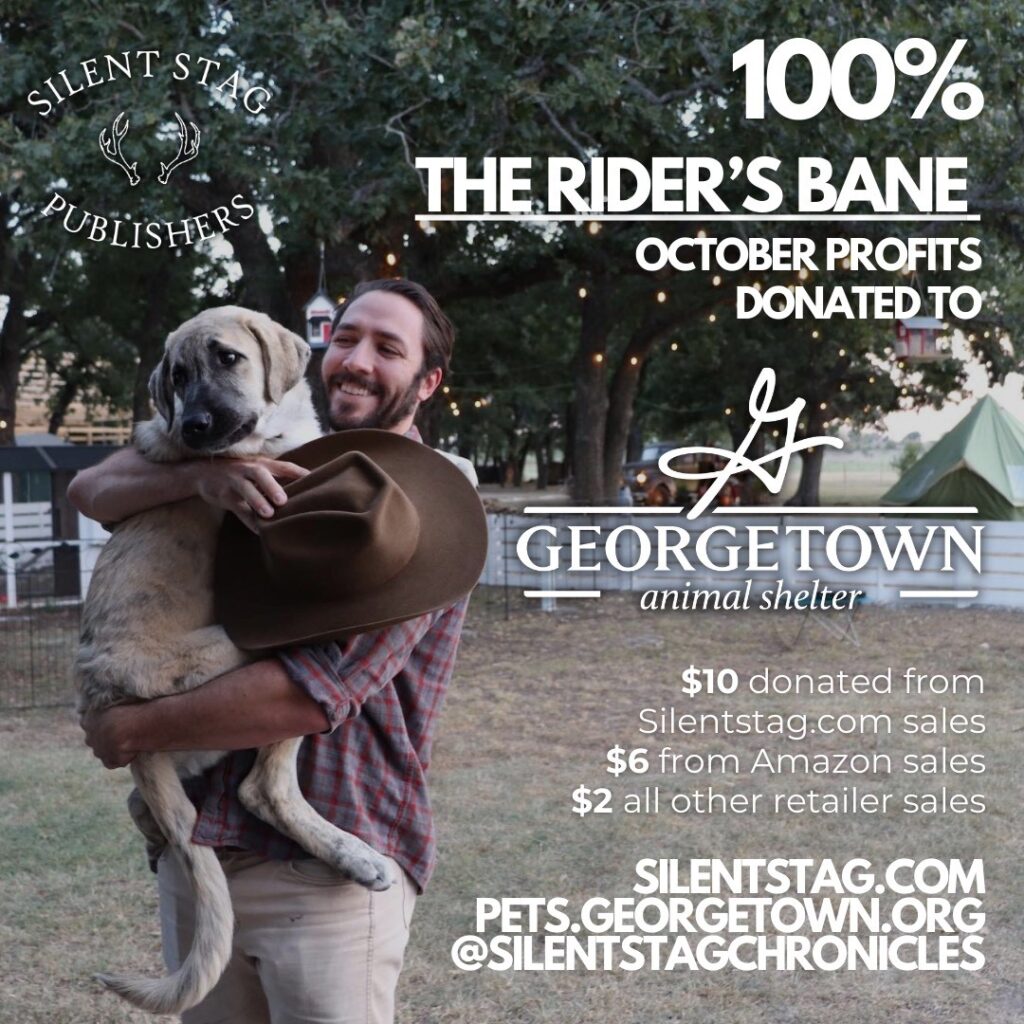
Fosters Needed!
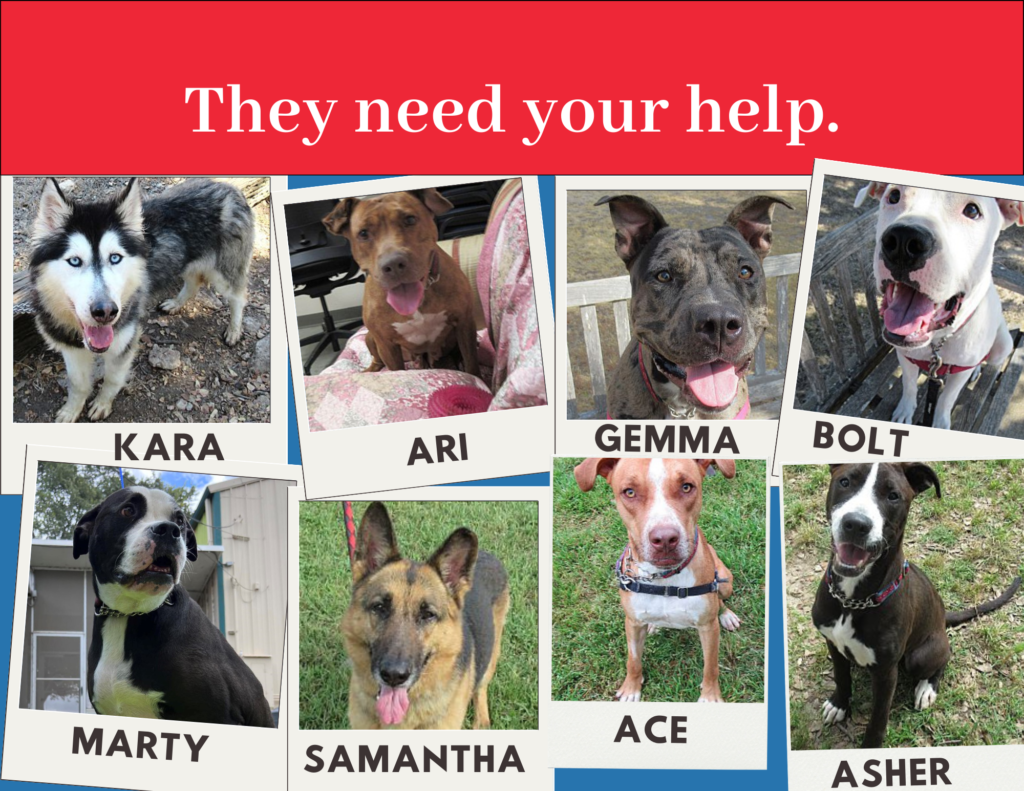 Short-Term Fosters Needed! We have no space for incoming dogs. ⛔ It feels like a crisis, but maybe that’s because we’re surrounded by it, day in and day out. We have been housing 45-50 dogs in space designed for 37 for months. Without your help, we cannot continue to save all the pets who enter our doors. 🙏
Short-Term Fosters Needed! We have no space for incoming dogs. ⛔ It feels like a crisis, but maybe that’s because we’re surrounded by it, day in and day out. We have been housing 45-50 dogs in space designed for 37 for months. Without your help, we cannot continue to save all the pets who enter our doors. 🙏 Georgetown Animal Shelter contains distemper virus, returns to normal operations
The Georgetown Animal Shelter, 110 Walden Drive, has resumed normal operations after limiting positive distemper cases to a single canine. Test results for the other 26 dogs currently in the Shelter’s care came back negative Monday, Aug. 28. The original canine who tested positive for distemper remains in isolation and continues to show signs of improvement. Shelter staff remain optimistic the dog will make a full recovery.
“Limiting the spread of such a contagious virus to the original dog who tested positive is an incredible testament to our shelter staff, who immediately put safety and cleaning protocols in place, and to our community, who immediately responded to our plea for fosters,” Animal Services Manager April Haughey said.
Within four days of the call for fosters, seven of the 15 healthy dogs were fostered or adopted out of the shelter. Residents who are fostering dogs are being asked to keep them for up to two weeks, to give staff time to catch up on surgeries and other tasks.
The shelter is resuming normal operations. People interested in adopting or fostering can view adoptable pets here. While walk-ins are welcome during operating hours, residents are encouraged to schedule an appointment ahead of time by calling 512-930-3592 or emailing animalsvc@georgetown.org.
The most important action the community can take to mitigating the spread of distemper is to fully vaccinate dogs. Dog owners are encouraged to reach out to their veterinarians to confirm vaccination status. The shelter is expanding its vaccine protocols to provide distemper boosters puppies every two weeks until six months of age. The shelter will continue to administer the distemper vaccine upon intake and a booster at two weeks for all new adult intakes.
Frequently Asked Questions
Kittens in the Library Aug. 10
Join the Georgetown Animal Shelter at the Library for a special kitten adoption event on August 10 from 11 a.m. to 1 p.m.! For a reduced fee of $35, you can take home a furry friend ready to complete your family.
All kittens are up to date on shots and are spayed or neutered.
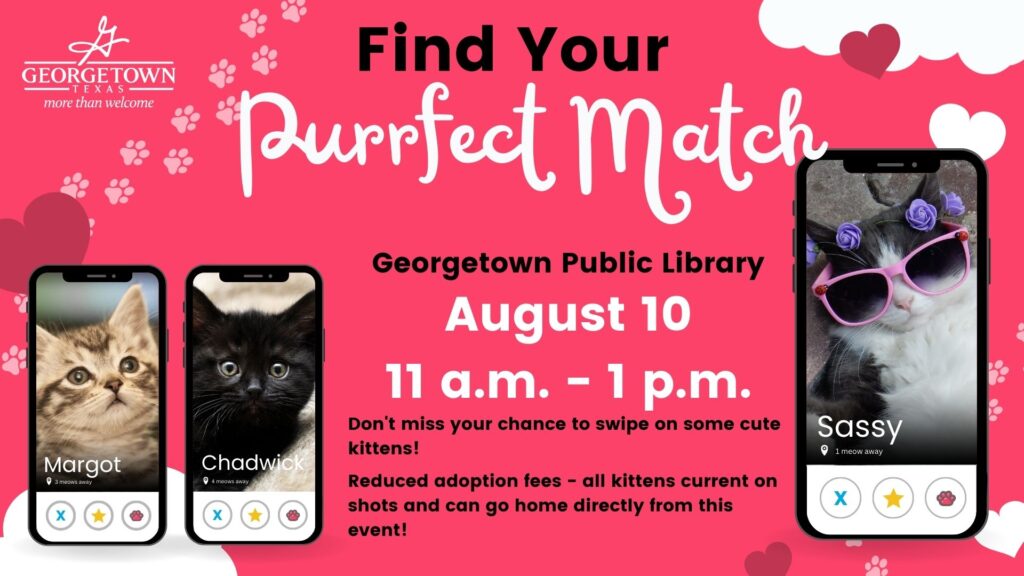
One Step Adoption Special
Before you Two Step over to San Gabriel Park next week, make the Georgetown Animal Shelter your first step! The shelter will be closed on Saturday during the big musical festival so we need to rack up some adoptions ahead of time.
Adult dogs and cats (7 months and up) may be adopted for only $15 from April 1-30. Adoptions include castration (neutering), branding (tattoo/microchip), shots and some goodies. Cattle dogs will be free since they work for free anyway.
Come on down!
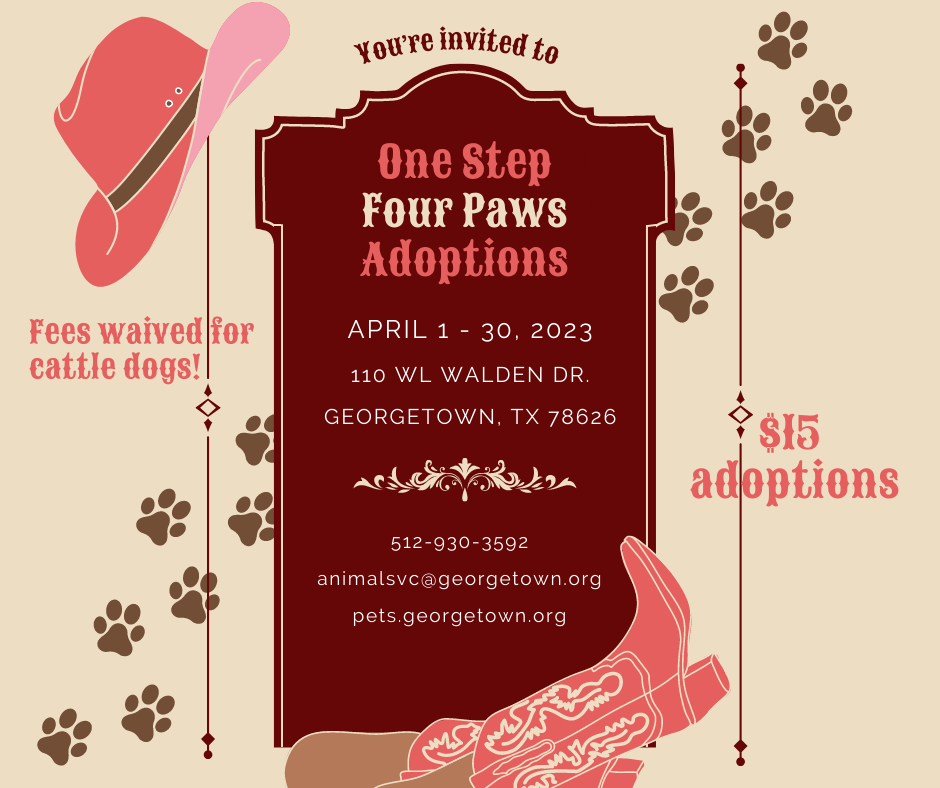
Return to Sunday Hours
It’s no joke – the shelter is opening up on Sundays again! Beginning April 23, we’ll be open to visitors from 12 to 4. And to celebrate 🎉, we are waiving adoption fees on Sundays through the end of the month.
⭐ April 23 and 30 ⭐
(Puppies and kittens are excluded. Come on, free puppies and kittens? No way!)
Appointments and walk-ins are welcome.
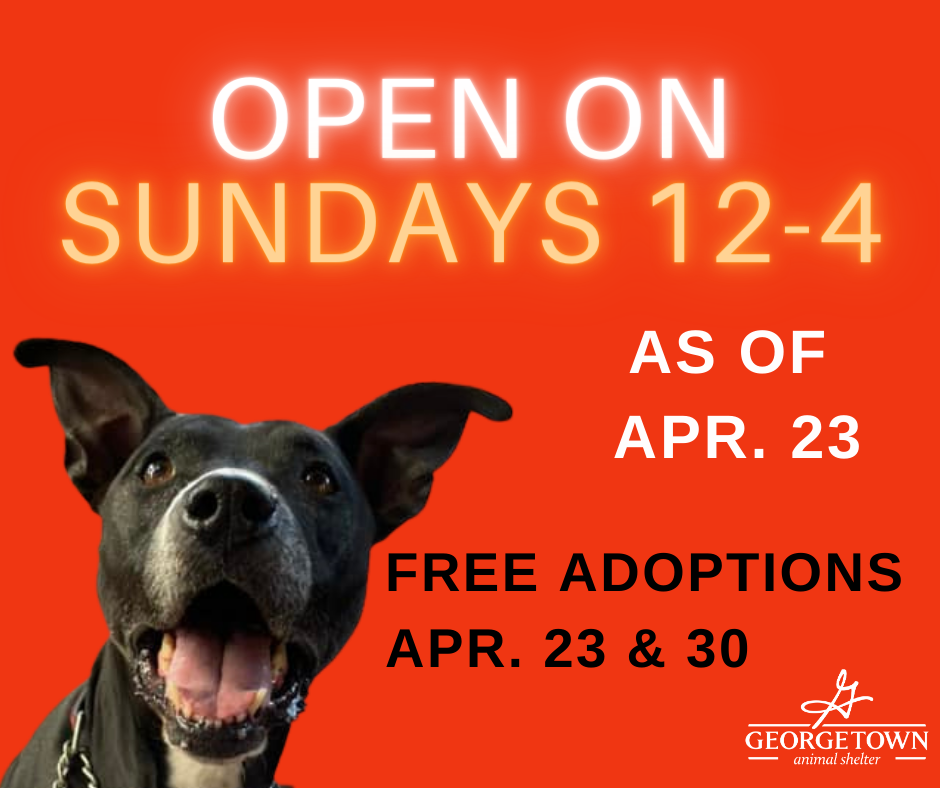
March Adoption Special
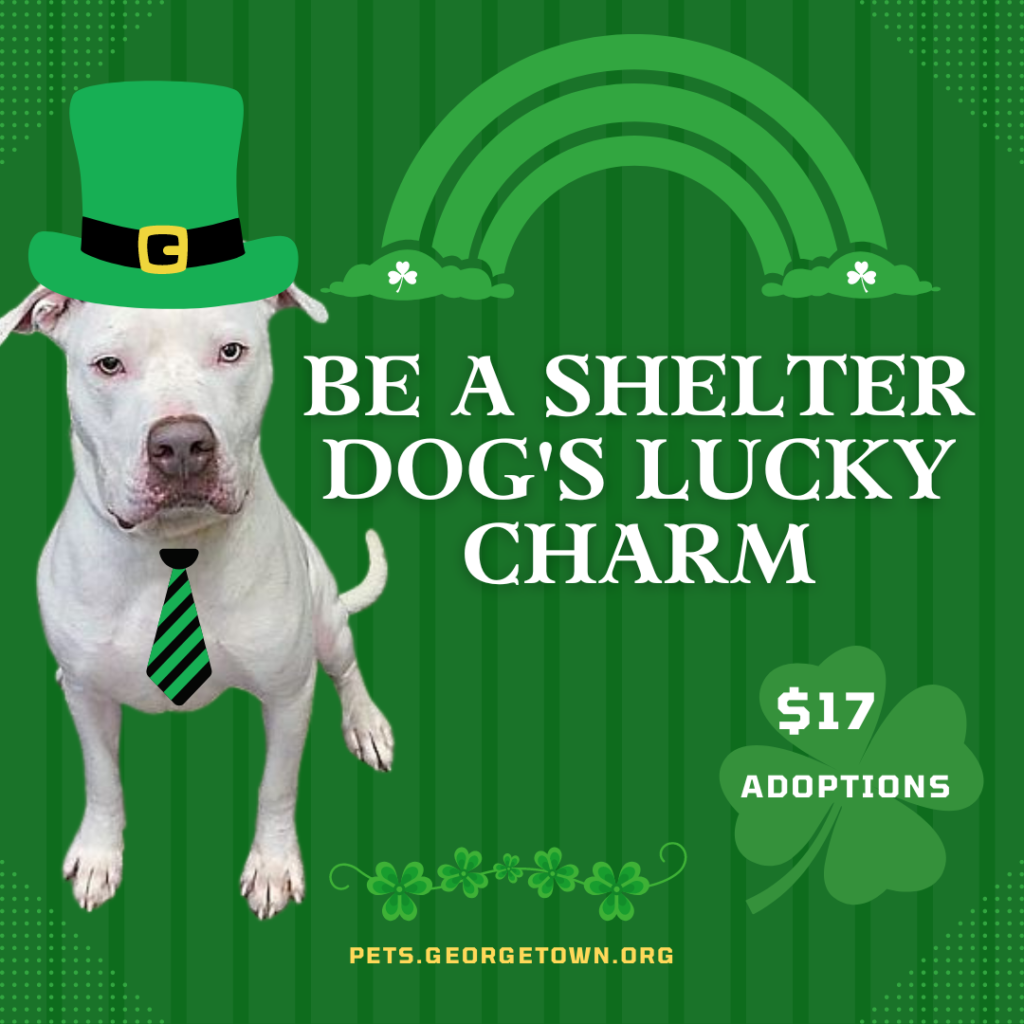 Don’t miss out on making a dog’s day & giving them a charmed life!
Don’t miss out on making a dog’s day & giving them a charmed life! 
$17 adoptions, which includes spay/neuter surgery, age-appropriate vaccinations, a registered microchip, a vet voucher for a free wellness exam, a small bag of dog food and various other goodies. (Small dogs and puppies do not qualify.)
![]() Visiting hours: Sat 12-4, M/F 11-5, T/Th 11-6.
Visiting hours: Sat 12-4, M/F 11-5, T/Th 11-6.


